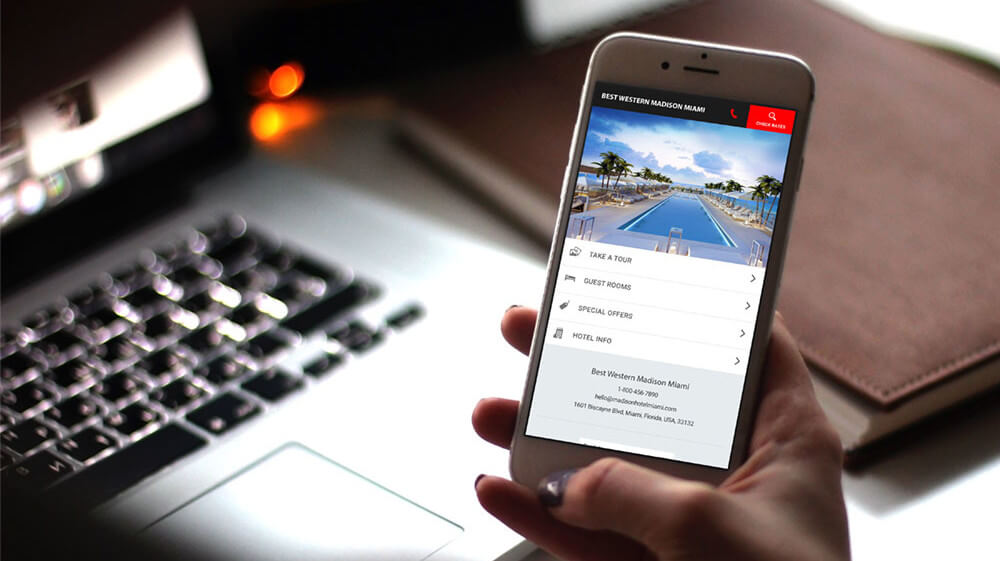
Mobile is no longer just a secondary channel – it’s a key battleground for direct bookings. As of June 2024, 70% of the world’s population (5.68 billion people) use mobile phones (We Are Social, 2024).
NB: This is an article from GuestCentric
Subscribe to our weekly newsletter and stay up to date
More than half of U.S. online purchases (54.5%) during the 2024 holiday season were made via smartphones (Reuters, 2025). These numbers confirm what we already know – Travelers expect a smooth mobile experience, and if hotels don’t deliver, they’ll lose guests to those that do.
Yet, despite 60% of travelers browsing hotel websites on mobile, only half complete their bookings (Hotel Benchmark, 2024). The reason? Many hotel websites and booking engines still aren’t optimized for mobile. Slow load times, clunky interfaces, and complex checkout processes drive potential guests away, often back into the hands of OTAs.
The Mobile Takeover in Hospitality

Mobile is dominating hotel bookings, with half of reservations now happening on smartphones. A growing number of travelers rely on mobile for research and transactions, yet many hotel websites are not optimized for a seamless booking experience.
Why Mobile is a Huge Opportunity for Independent Hotels
For independent hotels, this gap represents an opportunity. A well-optimized mobile booking experience can increase direct reservations, reduce OTA reliance, and build stronger relationships with guests.
According to Skift, forecasts suggest that by 2030, direct digital channels will surpass OTAs as the leading hotel distribution method, potentially generating over $400 billion in hotel gross bookings compared to $333 billion from OTAs. This shift highlights the importance of mobile-first strategies – hotels that embrace mobile booking technology now will have a significant competitive edge in the future.
I’ve spent years working with OTAs, both as a professional in the travel industry and as a traveler myself. OTAs have aggressively pushed mobile adoption, and their success in driving mobile bookings is no accident. They’ve created a blueprint for mobile engagement that hotels can learn from:
- Mobile-Exclusive Discounts – OTAs reward users for booking through their app with lower prices, conditioning travelers to prioritize mobile.
- Push Notifications & Personalized Alerts – They keep users engaged with price drop alerts, booking reminders, and exclusive deals.
- Seamless Check-Out Process – With saved payment details, one-click checkouts, and digital wallets, OTAs make booking effortless.
- Loyalty & Rewards Programs – Travelers are incentivized to return with perks like upgrades and discount tiers.
- Geo-Targeted Offers – Last-minute deals based on user location make the app immediately useful for travelers.
OTAs have set the standard for mobile booking experiences, and independent hotels must step up to compete. The good news? You don’t need OTA-level resources to make a big impact – small, strategic changes can transform your mobile booking performance.




